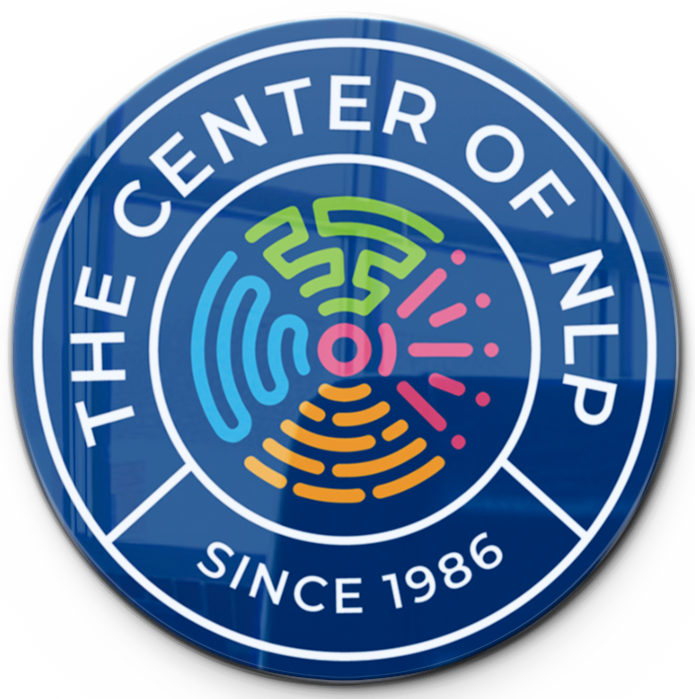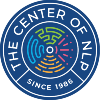CONTACT US info@centerofnlp.com

Journey to NLP Mastery: Techniques and Growth
Neuro-Linguistic Programming (NLP) stands as a transformative approach to human behavior, communication, and personal development. As individuals embark on the path to mastering NLP, they traverse through several distinct stages, each contributing uniquely to their growth and expertise. This journey not only equips them with practical skills but also their ability to influence and empower both themselves and others. Let's explore the stages of NLP mastery in detail, highlighting the profound impact and Strategic NLP Teaching evolution inherent in each phase.
Introduction to NLP: Laying the Foundation
At the outset of the NLP journey, individuals are introduced to the foundational principles that underpin this powerful discipline. NLP explores the intricate connections between neurological processes, language patterns, and behavioral outcomes. This introductory phase serves as a springboard, igniting curiosity and providing a fundamental of how thoughts, language, and actions interplay to shape our reality.
Participants at this stage delve into basic techniques aimed at enhancing communication, fostering rapport, and initiating personal change. Powerful NLP Techniques such as rapport-building, sensory acuity, and basic anchoring empower individuals to begin observing and modifying their own and others' behavior effectively. The power of language patterns and their influence on perception becomes pivotal as practitioners lay the groundwork for deeper exploration and application in subsequent stages.
Key Techniques Explored:
Rapport Building: Establishing deep connections through mirroring and matching.
Sensory Acuity: Heightened awareness of non-verbal cues and subtle shifts in behavior.
Anchoring: Creating associations between specific stimuli and emotional states.
The introduction to NLP sets the stage for practitioners to grasp the potential for personal transformation and lays a solid foundation upon which further skills are built.
Practitioner Certification: Delving Deeper into Techniques
Upon mastering the basics, practitioners progress to the practitioner certification level, where they deepen their proficiency in applying NLP techniques. This stage involves a more comprehensive exploration of strategies designed for personal development, improve communication dynamics, and facilitate behavioral change.
Practitioners learn to leverage more advanced techniques such as reframing, meta-modeling, and advanced language patterns to effectuate positive outcomes in various contexts. Reframing allows individuals to reinterpret situations to create more empowering meanings while meta-modeling facilitates precision in communication by challenging and expanding limiting beliefs and assumptions.
Advanced Techniques Explored:
Reframing: Shifting perspectives to foster resourceful thinking and behaviors.
Meta-Modeling: Clarifying communication by identifying and challenging linguistic distortions.
Advanced Language Patterns: Utilizing language to influence beliefs, emotions, and behaviors.
The practitioner certification level equips individuals with a robust toolkit for personal growth and professional enhancement, marking a significant stride towards mastery in NLP.
Refining Skills and Deepening
At the master practitioner certification level, practitioners ascend to a higher echelon of expertise within the realm of NLP. This advanced stage focuses on refining existing skills while introducing more sophisticated techniques aimed at profound personal and professional transformation.
Master practitioners delve into the intricacies of modeling excellence, employing advanced metaphors, and conducting deep change work. Modeling involves studying and replicating the strategies and behaviors of successful individuals to achieve similar outcomes, making it a potent tool for personal and professional development. Advanced metaphors enable practitioners to communicate complex ideas and concepts in a way that resonates deeply with others, facilitating profound shifts in thinking and behavior.
Advanced Strategies Explored:
Modeling Excellence: Studying and replicating successful behaviors and strategies.
Advanced Metaphors: Using symbolic language to evoke transformative insights.
Deep Change Work: Facilitating profound shifts in beliefs and behaviors at a subconscious level.
Master practitioners not only their ability to create lasting change within themselves but also develop the capacity to guide others through similar transformative journeys.
Transforming communication, mastering behavior, and achieving personal growth and professional success.
Trainer’s Training: Empowering Others through Strategic NLP Teaching
For those aspiring to share their expertise and facilitate learning in NLP, the trainer’s training level is indispensable. This stage focuses on honing the skills necessary to effectively teach and certify new practitioners and master practitioners in NLP techniques. It requires mastery not only of NLP principles and techniques but also of instructional methods and facilitation strategies.
The power of NLP Training emphasizes the importance of creating a conducive learning environment, delivering impactful presentations, and providing constructive feedback to foster growth and development in others. Trainers learn to adapt NLP techniques to diverse learning styles and preferences, ensuring that each participant gains a comprehensive practical application of NLP principles.
Skills Developed:
Effective Teaching Strategies: Tailoring content and delivery to optimize learning outcomes.
Facilitation Skills: Creating engaging and interactive learning experiences.
Feedback and Coaching: Providing constructive feedback to support individual growth.
Trainer’s training empowers individuals to not only master NLP themselves but also to impart this knowledge effectively, thereby multiplying the impact of NLP within their communities and organizations.
Continual Practice and Specialization: The Journey Never Ends!
Mastery in NLP is not a destination but a continuous journey of growth and refinement. Beyond formal certification levels, practitioners engage in continual practice, ongoing learning, and specialization in specific areas of interest within NLP. Whether in coaching, therapy, business, or other domains, ongoing practice allows practitioners to deepen their expertise, stay abreast of advancements in the field, and innovate new applications of NLP techniques.
Continuing Development Areas:
Specialization: Focusing on specific applications such as business coaching or therapeutic interventions.
Integration with Other Disciplines: Incorporating insights from psychology, neuroscience, and leadership development.
Research and Innovation: Contributing to the evolution of NLP through research and experimentation.
By continually refining their skills and expanding their knowledge base, NLP practitioners maintain their effectiveness and relevance in an ever-evolving landscape, ensuring that they remain at the forefront of transformative change.
The Power and Promise of NLP Mastery
In conclusion, the journey from linguistic novice to communication master through NLP mastery is a testament to the transformative power of human behavior, language, and thought patterns. Each stage—introduction, practitioner certification, master practitioner certification, trainer’s training, and continual practice—represents a crucial step towards deeper insight, proficiency, and impact.
NLP not only equips individuals with practical tools for personal and professional development but also empowers them to facilitate positive change in others. From foundational techniques to advanced strategies, the evolution of NLP mastery underscores its capacity to reshape perspectives, communication dynamics, and foster enduring personal growth.
Use NLP to Realize Your Potential. Discover our transformative programs and start your journey toward personal and professional growth.
Frequently Asked Questions
What is NLP?
NLP, or Neuro-Linguistic Programming, is an approach to communication, personal development, and psychotherapy that explores the relationships between neurological processes, language, and behavioral patterns.
How can NLP benefit me?
NLP techniques can communication skills, improve self-awareness, facilitate personal change, and empower individuals to achieve their goals more effectively.
Why should I learn NLP?
Learning NLP can lead to better relationships, increased confidence, leadership abilities, and a deeper of human behavior and communication dynamics.
When is the best time to start learning NLP?
Anytime is a good time to start learning NLP! Whether you're seeking personal growth, career advancement, or better interpersonal skills, NLP offers tools that can be applied immediately.
Where can I learn NLP?
NLP training programs are offered by certified practitioners and training institutes worldwide. Online courses, workshops, and seminars provide accessible options for learning NLP techniques and principles.
Check Out For more:
Master Effective Communication with Neuro-Linguistic Programming
From Fear to Fearless: Conquering Phobias with Neuro-Linguistic Programming
NLP for Relationships: Building Stronger Connections and Enhancing Intimacy
Exploring NLP Techniques: Unveiling the Power of Neuro-Linguistic Programming
Copyright 1989 - 2024 | The Center of NLP © | All Rights Reserved

